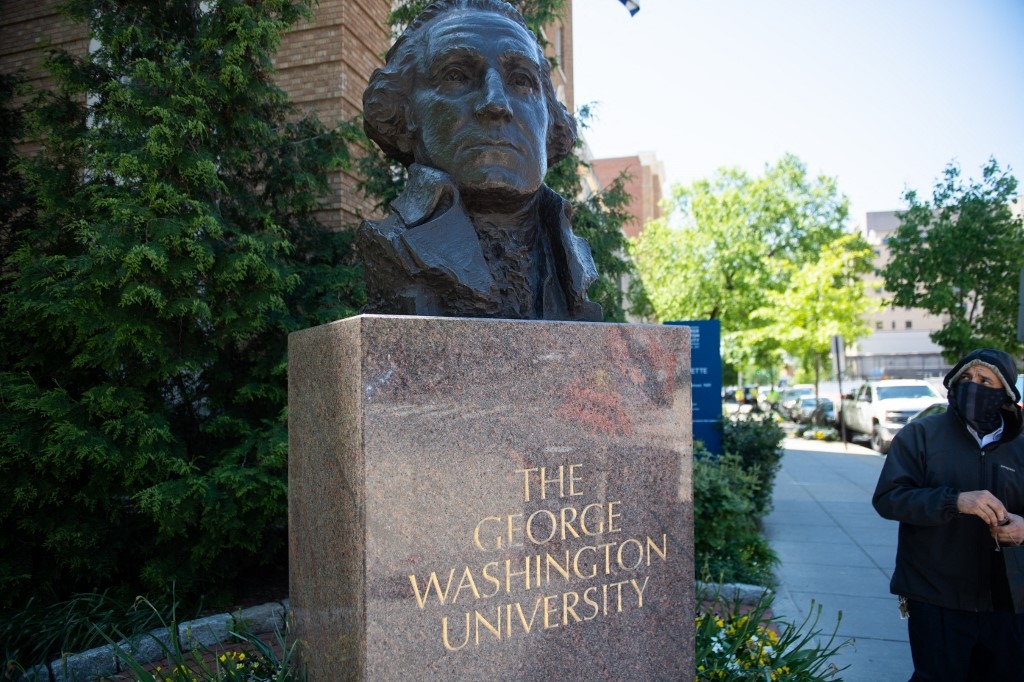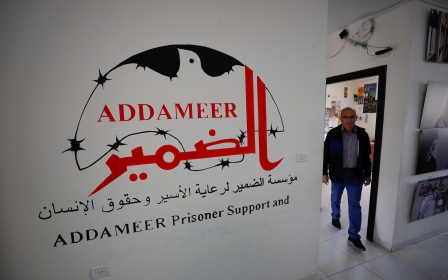US university faces civil rights complaint after cancelling trauma service for Palestinians

A Palestinian-American staff member at a US university filed a civil rights complaint against her workplace, accusing the institution of discriminating against Palestinians by denying them access to trauma services.
Nada Elbasha, who works at George Washington University's Office of Advocacy and Support (OAS), claims that after the OAS expressed support for Palestinian human rights and offered a "virtual processing space" for those impacted by the Israeli offensive on Gaza in May, the university administration cancelled the event.
"Palestinians at GW deserve to access the same services as any other students here," Elbasha said in a statement.
"To have high-level administrators cancel our support programming and threaten to close our office was a shocking declaration that GW does not care about its Palestinian students," she said.
The complaint was filed by Palestine Legal - an independent advocacy group which supports people targeted for Palestinian rights activism - and co-counsel Benjamin Douglas on behalf of Elbasha, and sent to the university last week.
It details how this denial of services and support, which it noted had been provided to other marginalised groups on campus, constituted a violation of the District of Columbia Human Rights Act (DCHRA).
"GW is committed toward diversity, equity and inclusion and to maintaining a nondiscriminatory work and educational environment," GW's Assistant Director of Media Relations Crystal Nosal told Middle East Eye in an emailed statement.
"We have received the letter from Palestine Legal and the concerns raised there will be investigated."
'Their pain is politically inconvenient'
According to the complaint, the incident began after Elbasha and colleagues discussed what to do for the campus' Palestinian students during the Israeli offensive on Gaza in May, which killed at least 248 Palestinians including more than 60 children.
The staff member noticed that many students were expressing trauma across social media, and on 2 June, the OAS advertised a "virtual processing space" for Palestinians and others impacted by Israeli aggression against Palestinians.
However, later that same day, the GW administration demanded the post be taken down and the processing event cancelled.
The complaint alleges that GW Assistant Vice-President of Health and Safety Kathleen Fox ordered the OAS director to remove the post, otherwise she would be fired.
'To deny Palestinians support because their pain is politically inconvenient is not just wrong, it’s illegal'
- Radhika Sainath, Palestine Legal
The OAS director was reportedly told that individuals had complained that the post was "harmful to Jewish students" and it was deleted.
"Our supervisor was forced to post a statement that wasn't written by our office, apologising for speaking out against Israeli apartheid," said Olivia Blythe, who worked at the OAS until October 2021.
Palestine Legal said "GW's denial of services constitutes national origin discrimination".
"To deny Palestinians support because their pain is politically inconvenient is not just wrong, it's illegal," said Palestine Legal senior staff attorney Radhika Sainath.
The university has previously been criticised for anti-Palestinian discrimination including in 2015, when campus police ordered a student to remove a Palestinian flag from his window. The university's president later apologised for the incident.
Middle East Eye delivers independent and unrivalled coverage and analysis of the Middle East, North Africa and beyond. To learn more about republishing this content and the associated fees, please fill out this form. More about MEE can be found here.





